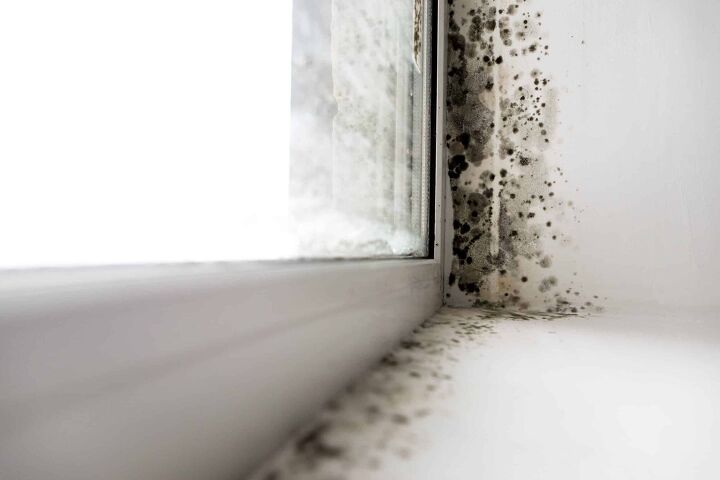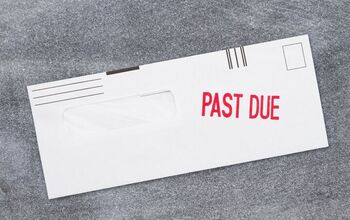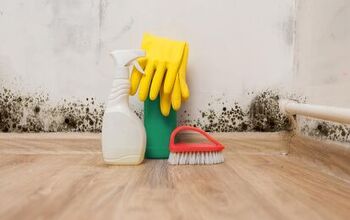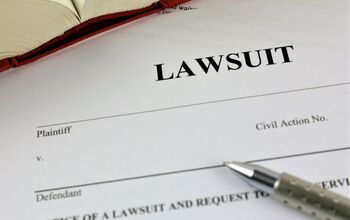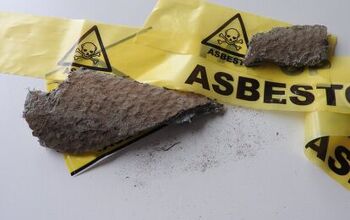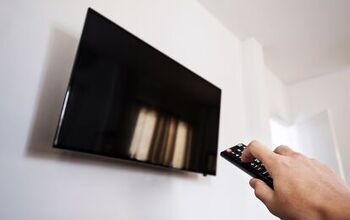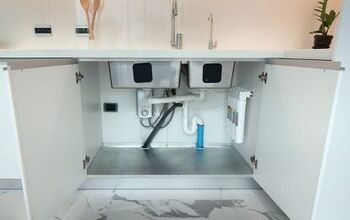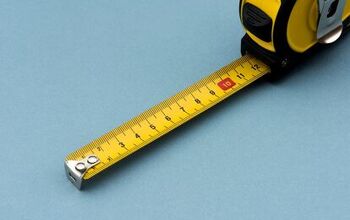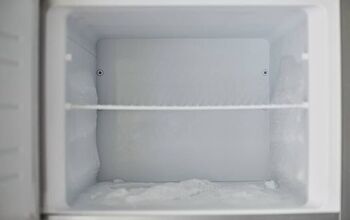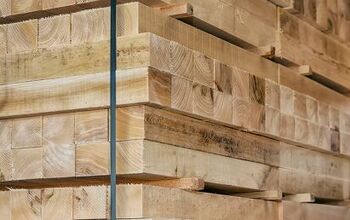Can I Sue My Landlord For Mold?

The landlord/tenant relationship is supposed to offer mutual protection. For the costs of rent, the tenant should be able to expect timely repairs, safe conditions, and all of the protections and rights that come with being a tenant.
You can sue your landlord for mold if it is caused by a leak that the landlord did not fix. It is also possible to sue your landlord if you had to spend money on inspection or remediation. Damages to your health or missing work due to mold make it possible to sue your landlord.
Do You Need Mold Removal Services?
Get free, zero-commitment quotes from pro contractors near you.

When Tenants Can Sue Landlords Over Mold
Because of the potential health dangers of mold, there are several instances in which a tenant can sue their landlord. For instance, if you have notified the landlord that there is a leak or visible mold somewhere on the property, but they choose to do nothing about it, you can sue.
If there have been past and future medical expenditures due to that mold exposure that haven’t been reimbursed by your landlord, you can sue. Any lost wages, both past and future due to the conditions caused by mold, can be sued for as well. Any costs incurred by the tenant to remedy the issue or personal property damage caused by the mold should be covered by the landlord.
There are plenty of toxic mold lawsuits out there as a result of these reasons. If you have experienced issued due to mold in your apartment or home, there are actions that can be taken.
Let’s dive in a bit deeper and explore these situations where it is acceptable for a tenant to sue a landlord over mold.
The landlord has not fixed a water leak or remediated visible mold.
In this instance, you may be wondering how long a landlord has to fix a mold problem after a tenant has called attention to it. Although there is no established time frame, if the landlord delays fixing the issue, it will get much worse.
When your landlord either delays or refuses to fix the mold problem, the health of you and your family are at risk and you can sue.
You have had to visit the doctor as a result of mold exposure.
If you do not have medial insurance or your insurance doesn’t cover the entire cost of the medical expenses related to your exposure to mold, you can sue to get reimbursed. Not to mention, suing can help you recover costs for future medical treatment that may be required as a result of mold exposure.
You’ve had to miss work because of health problems related to mold exposure.
If your condition has resulted in you missing work, and therefore missing income, you can sue for lost wages, both past and future.
You’ve incurred expenses to remedy the issues caused by mold.
If you purchased any cleaning or mold-killing products to try to remedy the mold problem, you can sue to retrieve those costs. Or, if you’ve had to do any repairs on the property due to damage caused by mold, the landlord should cover those costs as well.
There is mold-related damage to your household goods or personal property.
If you have renter’s insurance, you’ll want to inspect your specific coverage. Most will cover the cost of mold damage to your furniture, personal possessions, and household items. However, depending on the terms outlined in your policy, there may be an exception for mold that has developed over time that should have been noticed earlier. Or, there may be an additional exception for mold caused by flooding.
If your policy doesn’t cover mold damage to your property or you simply don’t have renter’s insurance, you can add these monetary damages to a lawsuit against your landlord for health-related concerns.
The mold has caused general pain and suffering.
Although pain and suffering can be difficult to calculate, where property damage, injury, or even inconvenience exists, tenants have the potential to recover anywhere from $3,000 to $10,000. In fact, some tenants have won massive settlements against landlords where the property damage or injury was severe.
For example, a tenant in California sued his landlord for failure to maintain the property’s crawl space. This resulted in moisture and toxic mold growing throughout the rental home. One of the tenants had to have sinus surgery and suffered hearing loss in one ear from middle ear infections caused by mold exposure. These tenants settled for a staggering $500,000.
Or, as another example, a jury awarded two women in Delaware over $1 million since their landlord did not fix leaks that were reported. These leaks resulted in mold and caused health problems for both tenants.
How Much Can a Mold Lawsuit be Worth?
There is no specific formula to determine how much a lawsuit involving mold will be worth. It can depend on whether or not the landlord was proven to be negligent as well as the severity of any health problems that were ultimately caused by the mold.
A lawsuit can be worth thousands to even hundreds of thousands based on these factors. If you have experienced serious health issues due to mold growth in your home and the landlord did nothing, it could be worth quite a bit.
Consult with an attorney if this fits your current situation. Even if you have not had your health seriously impacted, there is a good chance that you have been financially impacted due to mold on the property and a failure to act on the part of the landlord. It is a good idea to have the mold removed immediately, even if you are the one to pay for the costs upfront.
What Causes Mold?
Mold is typically the result of water damage. This can be due to something major like a burst pipe or something as small as a leak that is allowed to persist over time. The initial moisture isn’t the cause, but the moisture that gets trapped.
Moisture can get just about anywhere, resulting in mold growth on things like ceiling tiles, cardboard, paper, paint, wood, insulation, drywall, wallpaper, fabric, carpet, and upholstery. In the event of flooding, mold will grow if those materials, fabrics, or furniture are not effectively cleaned or removed completely.
Water penetration can be due to a lot of things. The first can be due to flaws in the design. Cracks and gaps allow excess moisture to become trapped, leading to mold growth. Wear and tear can also lead to gaps and cracks in the roof, windows, and even in the pipes that transport water into a home. Flood and sewer problems are also common problems when it comes to moisture build-up and, eventually, mold growth.
How to Tell if You Have Mold
Mold has been around longer than most organisms, dating back millions of years. Because it can enter in a variety of ways, it can be tough to know if there is mold growing. Mold can collect and grow in vents, windows, air conditioning and heating systems, and many other areas.
In those tough to see areas, having yearly inspections will uncover mold growth. In areas that are visible, you will start to notice a fungus growing on the surface of the material in question. When the mold starts going from green to black in appearance, it can be quite dangerous to inhabitants of the property.
Mold Infections
Mold spores that are allowed to manifest and grow within your home can trigger not only irritation, but allergic responses if it is either inhaled or touched. The symptoms are very similar to allergies, making it difficult to know immediately whether or not mold is the root cause.
The symptoms include, but are certainly not limited to fever, headache, wheezing/trouble breathing/asthma, irritated eyes, itching eyes, tears, irritated throat which can lead to coughing, and even memory loss if the mold is allowed to persist for long enough.
The difficulty here is that none of these symptoms are exclusive to mold growth. They can seem like common allergies and people will tend to just wait for allergies to go away instead of doing much about them. This can allow mold to continue to grow unchallenged.
Long-Term Health Problems Caused by Mold
When mold is allowed to grow undeterred over time, it can lead to lasting implications for the respiratory system. People who have never had asthma before may suddenly begin to develop the condition, for instance.
People who already have asthma may begin to experience more frequent and severe attacks than they have had before. Mold is also likely to cause shortness of breath or difficulty breathing in those already living with asthma.
There is also a chance that lung infections can develop over time. Cancer patients that have suppressed immune response due to chemotherapy, those who have received an organ transplant or stem cells, and those with HIV can be particularly impacted by mold infestation over a long period of time.
Can Mold be Removed?
Mold can be removed through a process known as mold remediation. This process is quite costly and it should be implemented by a professional mold removal service. In order to avoid mold growth, any water damage has to be dealt with within the first 24-48 hours.
If it has been longer than that since the water damage has occurred, there is an excellent chance that mold has already began to form. When this happens, the space needs to be evacuated so that a professional service can come in and remove it.
What the Landlord Can Do
In the event that mold is apparent, the aforementioned professional intervention is required. Mold is dangerous and should not be handled by amateurs. Not only that, but there is also a chance that the mold may not be completely eliminated unless done by an experienced professional.
The landlord may or may not have insurance to protect against mold. Even if they don’t, they are legally obligated to keep the rental property in what is known as “habitable condition.” That means they have to do everything they can to make the home livable. Living with mold violates that condition.
The landlord is then required to remove the mold from the property, insurance, or not. If they fail to fix leaks and remedy the mold issue, they are liable and can be taken to court over this inaction.
Do You Need Mold Removal Services?
Get free, zero-commitment quotes from pro contractors near you.

Final Thoughts
In short, you can absolutely sue your landlord for mold issues. Whether you’ve detected mold in your rental, or your personal belongings and household goods have been damaged by mold, or you or someone you live with has developed symptoms that indicate a mold infection, you should contact a lawyer and begin the process of suing your landlord.
You are entitled to a safe place to live for you and your family and the recovery of any monetary damages that occurred as a result of mold.

Ryan Womeldorf has more than a decade of experience writing. He loves to blog about construction, plumbing, and other home topics. Ryan also loves hockey and a lifelong Buffalo sports fan.
More by Ryan Womeldorf



